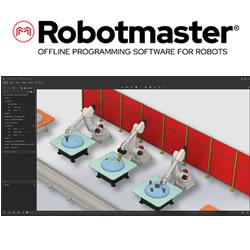High-Speed Piezo Positioner Provides Improved Stiffness for Faster Response: PI Launches P-630 Direct-Drive Piezo Nanopositioning Stage
MARS Rover-proven piezo drive technology is behind PI's new high-speed nanopositioning system. The P-630 linear stage achieves its high performance through a direct-drive mechanism and multi-layer piezo ceramic actuators.
Auburn, MA July 20, 2013
MARS Rover-proven piezo drive technology is behind PI's new high-speed nanopositioning system. The P-630 linear stage achieves its high performance through a direct-drive mechanism and multi-layer piezo ceramic actuators. Its high mechanical resonant frequency of 3.25 kHz enables very rapid scanning speeds and step and settling times of only a few milliseconds.
The compact closed-loop piezo positioner provides 80 microns of motion with sub-nanometer resolution. With a height of 0.7" and width of 2 inches, the device integrates a large aperture of 1.2" an advantage for optical applications.
Technical data and specifications are available here: http://www.physikinstrumente.com/en/products/prdetail.php?sortnr=202550&onl_prw
The drive technology of the highly dynamic piezo nanopositioning systems is based on all-ceramic insulated PICMA® piezo actuators. They were tested by NASA for 100 billion cycles without failure.
Extremely high accuracy and stability in the nanometer and sub-nanometer realm is achieved by an integrated capacitance sensor and closed-loop operation with a digital servo piezo controller.
For high performance control, PI's new E-709.CHG piezo motion controller is available. Its digital control algorithms provide better linearity than conventional piezo controllers and all motion parameters can be adjusted on the fly.
Featured Product

Robotmaster 2024
Program multi-robot cells and automatically solve robotic errors with ease. Hypertherm Associates announces a new version to its robotic programming software. Robotmaster 2024 addresses key market trends including the support for programming multiple robots in a single work cell and the demand for automatic trajectory optimization and robotic error correction.
